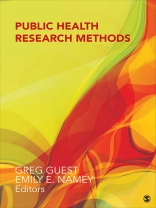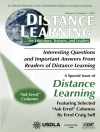Public Health Research Methods is a comprehensive collection of research methods used in the field of public health. This text is about providing researchers, and future researchers, with an up-to-date and comprehensive set of tools to investigate public health issues and problems, to ultimately better inform public health policy and practice. The contents of this book go beyond traditional epidemiologic approaches and cover the various research methods and technologies that are emerging in the new public health landscape.
Mục lục
1: Introduction to Public Health Research Methods – Greg Guest
PART I: Planning and Preparing for Research
2: Designing Research – Heidi Reynolds, Greg Guest
3. Research Ethics and Working with Institutional Review Boards – Amy Corneli, David Borasky
4. Cultivating Stakeholder Involvement in Public Health Research – Dazon Dixon Diallo, Paula Frew
In Focus: Community-Based Participatory Research – Karen Hacker and Greg Guest
PART II. TRADITIONAL EPIDEMIOLOGIC METHODS & DESIGNS
5. Public Health Surveillance: From Data to Action – Donna Stroup, Steven Thacker
6. Outbreak Investigation – Douglas Hamilton
7. Cohort and Case Control Studies – Lee Warner, Deborah Dee
8. Designing Randomized Controlled Trials – Theresa Gamble, Danielle Haley, Niru Sista, Raymond Buck
PART III. STRUCTURAL AND OPERATIONAL RESEARCH
9. Using Secondary Data – Sarah Boslaugh
10. Economics of Population Health – Emma Mc Intosh, Cam Donaldson, Lyndal Bond, Kenny Lawson
In Focus: Cost Analysis for Interventions – Rick Homan
11. Health Services Research – Heidi Reynolds
12. Survey Design and Implementation – Jeanne Bertolli, Kathy Hageman, Travis Sanchez, Andrea Kim
13. Scale Development and Validation – Glenn Gamst, Lawrence S. Meyers, Holly Mc Clain Burke, A. J. Guarino
14. Social Network Analysis. Methods and Applications in Public Health – Elizabeth Costenbader, Thomas Valente
15. Qualitative Research Methods – Emily Namey, Robert Trotter II
16. Randomized Controlled Trials for Psychosocial Interventions – Phyllis Solomon, Mary Cavanaugh
PART IV. CROSS-CUTTING METHODS AND APPROACHES
17. Sampling: The Foundation of Good Research – Johnnie Daniel
18. Statistical Methods in Public Health Research – Mark Weaver
19. Mixed Methods Research – Greg Guest, Paul Fleming
In Focus: Using Vignettes in Public Health Research – Paul Fleming, Michael Stalker
20. Geographic Information Systems (GIS) in Public Health – Candace Nykiforuk
21. Public Health 2.0. Fresh Approaches to Old Problems – Hans Ossebaard and Lisette van Gemert-Pijnen
In Focus: Mobile and Digital Data Collection in the Field – Mitesh Thakkar, Nikhil Wilmink, Rachna Nag Chowdhuri, Sruthi Chandrasekaran
PART V. APPLYING RESEARCH FINDINGS
22. Enhancing Research Utilization – Jeffery Peterson, Angie Funaiole
23. Implementation Science. Identifying the Path from Innovation to Impact – Temina Madon
APPENDIX 1. Theories and Models in Public Health Research
Giới thiệu về tác giả
Emily E. Namey, MA, has over 10 years’ experience applying her skills in project management and knowledge of research methods to the design, implementation, conduct, monitoring, and dissemination of public health research. Emily recently rejoined FHI 360, where she manages domestic and international qualitative and mixed methods projects related to health disparities and HIV prevention. Prior to her work at FHI 360, she spent over 5 years at Duke University, splitting time among the Institute for Genome Sciences and Policy, the Department of Obstetrics and Gynecology, and the Trent Center for Bioethics. At Duke, Emily implemented qualitative research on subjects ranging from maternity care to vaccine trial participation to ethical approaches to genomic research recruitment to the use and understanding of Certificates of Confidentiality. She has experience in the private sector as well, having completed projects at Intel Corporation and Nike, Inc. Emily has designed and led qualitative research training courses in more than a dozen countries and has co-authored several methodological publications, including Collecting Qualitative Data (Sage 2012), Applied Thematic Analysis (Sage 2012), Qualitative Research Methods: A Data Collector’s Field Guide (Family Health International, 2005) and “Data reduction techniques for large qualitative datasets” in Handbook for Team-based Qualitative Research (Alta Mira 2008). Her publications also include articles in Social Science & Medicine, Fertility and Sterility, AIDS Care, IRB, and the Journal of Empirical Research on Human Research Ethics. Emily received her MA in applied anthropology from Northern Arizona University.












